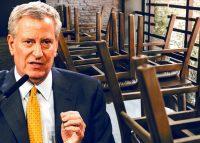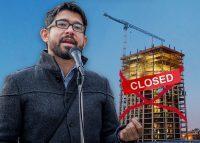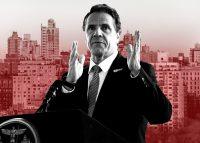As the trajectory of the coronavirus epidemic in New York City threatens to overwhelm the city’s health care system, the de Blasio administration’s effort to get ahead of the curve is turning into a real estate problem.
The city plans to convert properties such as hotels and parking lots into medical facilities to handle the anticipated surge in patients.
“I’ve ordered all my colleagues to identify all spaces that can be converted immediately to medical use,” de Blasio said in a press briefing Monday. “We are going to be constantly building out medical facilities and creating them where they’ve never existed before and retrofitting facilities that have nothing to do with health care.”
Read more




The mayor said the city will also look for private properties that can be turned around relatively quickly.
Paul Wexler, who leads the Wexler Healthcare Properties brokerage group at Corcoran, said the best spaces would be ones that are already built out for healthcare purposes or those that could be easily converted. But available ones are hard to come by, he noted.
“There are not a lot of large blocks available,” he said. “For the most part, there are limited opportunities.”
Four medical facilities — in Brooklyn, the Bronx and on Roosevelt Island — totaling more than 1,200 beds will be brought online immediately, the mayor said.
Hospital capacity will be boosted by discharging patients more rapidly, cancelling elective surgeries, and converting spaces including cafeterias and parking lots into intensive care units — creating another 7,000 beds.
The city’s emergency management agency is procuring dozens of tents to help establish medical facilities in outdoor areas.
Additionally, the city has so far identified five hotels totaling 250 rooms that may be used to house quarantined individuals and city personnel, and expects to scale rapidly from there. A recently built nursing home in Brooklyn that has yet to be occupied will supply some 600 beds, said the mayor, who declined to identify the site because the deal had not been completed.
In order to staff these new facilities, the city is also examining the possibility of bringing back recently retired medical personnel or credentialing medical students.
“This will be a race against time to create these facilities to get them up and running, to find the personnel and the equipment we need,” said the mayor. “We have no choice but to expand rapidly and be ready for anything.”
The anticipated lack of hospital beds represents a reversal for New York City’s healthcare industry. For years, public and private hospitals in the city were plagued by an oversupply of beds as improving medical practices allowed outpatient procedures to replace overnight stays. High overhead costs drained hospital budgets and more than a dozen closed. Some have been replaced by new development.
